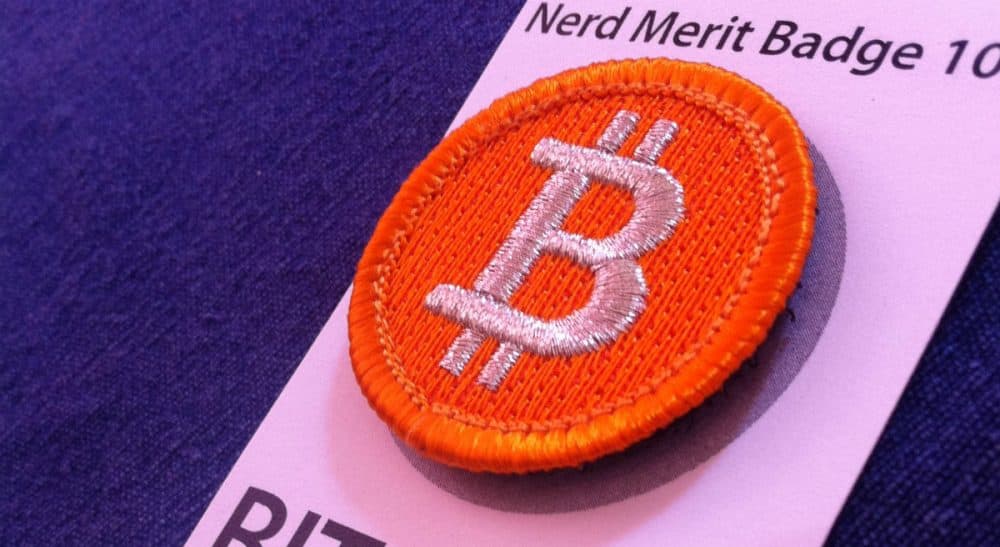Advertisement
Property, Currency And Semantics Aside — My Bet Is On Bitcoin

The IRS has a lot on its plate just now: It collects $2-to-3 trillion of revenue each year, administers the tax credit that builds much of the low-income housing in the country, hands out a good chunk of our welfare payments through the Earned Income Tax Credit, and, most recently, runs a goodly portion of the Affordable Care Act, just to mention a few of its more pressing engagements.
But in its spare time the IRS also likes to classify things. For example, back in the 1970s and early 1980s, one of the things the IRS undertook to classify was the jojoba bean. The jojoba is a plant that can grow in semi-arid regions, requires little water or maintenance, and bears, well, that was the question. If the jojoba bean was a “fruit” then it was eligible for valuable agricultural subsidies, but if it was a “nut” then it did not so qualify. After careful consideration and reconsideration — and with lots of thoughtful input from politicians and lobbyists — the IRS reached its solemn verdict: The jojoba bean was both a fruit and a nut. As Casey Stengel used to say, you can look it up.
Imagine if you had to keep a record of every time you acquired or spent a dollar, based on daily market variations in the price of a dollar compared to the price of Euros?
Building on that epistemological success, the IRS recently turned its attention, in IRS Notice 2014-21, to yet another vexing classification problem: the Bitcoin. Was this strange new internet-based electronic currency a true “currency” or was it a kind of "property"? In other words, was a bitcoin more like a Euro or a dollar, or was it more like a kind of investment property, e.g., stocks, bonds, commodities or a gold bar?
The first question you might ask is, “Who the heck cares?”
In fact, the proper tax classification matters a whole lot, at least to Bitcoin owners. If the Bitcoin were classified as a “currency,” there would be all kinds of complicated and interesting tax consequences; but if it were classified as “property,” all kinds of different, but still complicated and interesting, tax consequences would result.
But enough with the suspense. The envelope please. And the winner, according to the IRS, is: property classification.
By deeming the Bitcoin property, the IRS gives the taxpayers who own Bitcoins some benefits, but takes away others. As property, a Bitcoin held for investment can appreciate or depreciate in value, and therefore will likely result in a long-term capital gain or loss, rather than ordinary income or loss, on disposition. However, if the Bitcoin is used for purposes similar to a currency — which is kind of its whole reason for existing in the first place — this classification is not such a good deal.
The reason is that every transaction involving an exchange of Bitcoins for something else — dollars for Bitcoins, Bitcoins for dollars, Bitcoins for tangible property or services, tangible property or services for Bitcoins, etc. — will be treated as a taxable sale or exchange transaction.
Imagine if you had to keep a record of every time you acquired or spent a dollar, based on daily market variations in the price of a dollar compared to the price of Euros? That is the unmentioned paperwork burden now thrust onto Bitcoin users.
In addition, if you make or lose money in your various Bitcoin exchanges, the tax treatment is complicated. As noted above, if you hold Bitcoins as an investment asset, it should generate capital gain or loss. But if you use Bitcoins as your e-version of cash, any income or gain will certainly be taxable but any loss may in fact be non-deductible. In particular, deductibility of losses may well depend on whether the Bitcoin is being used in personal transactions (possibly making the loss non-deductible) or whether it is being used for business purposes (making the loss at least arguably deductible).
What this all means is that the IRS has made it a real pain in the butt to use Bitcoins as your personal currency.
The conventional wisdom is still dismissive of Bitcoins, and tends to view Bitcoin supporters the way the IRS once classified the jojoba bean: as both a fruit and a nut. But we shall see who has the last laugh.
Whether this ruling is likely to discourage the massive popular proliferation of Bitcoin remains doubtful. The Bitcoin is popular among the propeller heads who drive and populate the internet precisely because it is a digital currency.
Meanwhile, every sensate person should have deep misgivings about almost every form of currency in circulation these days: In case you missed it, the U.S. government has borrowed $6 trillion in just the last five years, and now owes over $16 trillion in debt, with no evident intention of changing its borrowing and spending habits in the foreseeable future. Therefore, despite the overt hostility from all currency-issuing nations — and especially from the United States of America and its Treasury Department — the Bitcoin continues to be curiously and massively popular among a small but extremely sturdy and critically important constituency — tech enthusiasts.
The conventional wisdom is still dismissive of Bitcoins, and tends to view Bitcoin supporters the way the IRS once classified the jojoba bean: as both a fruit and a nut. But we shall see who has the last laugh. It seems inevitable that some unit of electronic wealth (whether the Bitcoin or, more likely, version 2.0, or the version after that, or the version after that) will soon become a real internet currency, regardless of the IRS classification and regardless of any and all efforts to stymie its use.
In short, my money — in whatever currency you wish to wager — is on the Bitcoin.
Related:
- Mark T. Williams: Beware Of Bitcoin
- On Point: Digital Currency, Bitcoin And The Dark Web
- What A Bitcoin Political Debut Could Mean For Transparency
